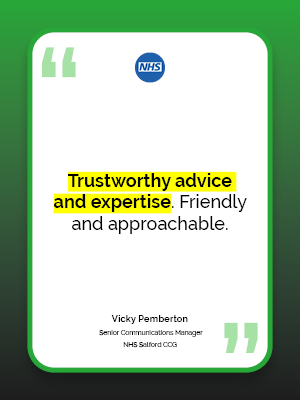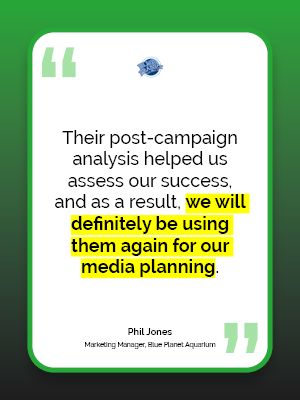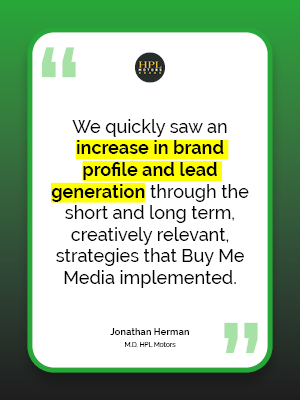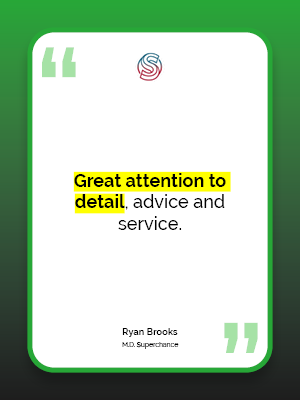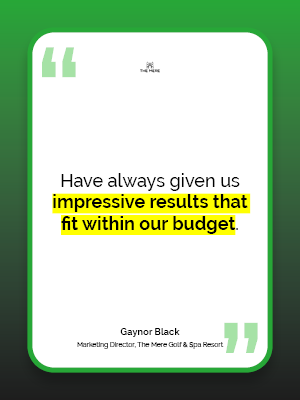Understanding What it Means to ‘Buy Media’
Understanding What it Means to ‘Buy Media’
In today’s fast-paced digital world, the art of media buying has become a crucial component of any successful marketing strategy. But what exactly does it mean to ‘buy media’? In this article, we will delve deep into the world of media buying, exploring its definitions, roles, processes, and the impact of digital transformation. By the end, you will have a comprehensive understanding of this fascinating field and be equipped to make informed decisions when it comes to your own media buying endeavors.
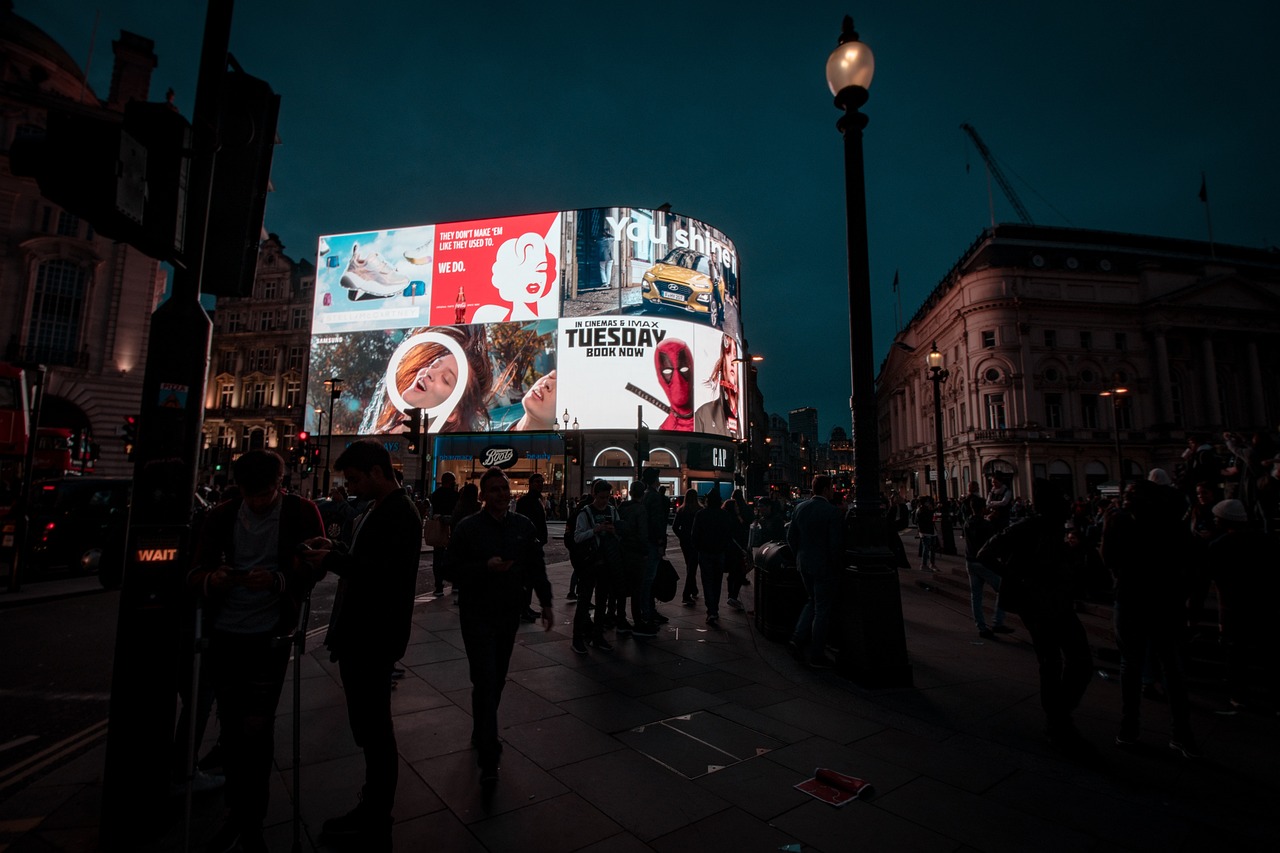
Defining ‘Media Buying’
Media buying refers to the process of acquiring advertising space and time on various media channels to reach a target audience effectively. It involves strategic planning, negotiation, and monitoring to ensure optimal exposure and return on investment. In essence, media buying is the art of selecting the most relevant platforms and outlets for your marketing messages to resonate with your intended audience.
When it comes to media buying, there are several key factors to consider. One of the most important aspects is understanding your target audience and their media consumption habits. By conducting thorough market research and analyzing audience demographics, you can gain valuable insights into the media channels that will best reach and engage your desired customer base.
Once you have identified the most effective channels, the next step is to negotiate the purchase of advertising space or time. This involves establishing relationships with media representatives, discussing pricing, and reaching agreements that align with your budget and campaign objectives. The negotiation process requires a keen eye for detail, persuasive skills, and the ability to find mutually beneficial solutions.
After securing the media space, it is essential to continuously monitor and evaluate the performance of your ad placements. This involves analyzing key metrics such as impressions, click-through rates, and conversions to gauge the effectiveness of your media buying efforts. Through this ongoing evaluation, you can refine your strategy, optimize your media spend, and ensure that your messages are resonating with your target audience.
Now, let’s delve deeper into the different types of media that can be bought through media buying. Traditional media, such as television, radio, and print, continues to play a significant role in reaching broad audiences and building brand awareness. These channels offer a wide reach and allow advertisers to showcase their products or services to a diverse range of consumers.
On the other hand, the rise of digital media has opened up new opportunities for targeted advertising. Platforms like search engines, social media, and video streaming services provide advertisers with the ability to reach specific audience segments and deliver personalized messages. Digital media allows for precise targeting based on demographics, interests, and behaviors, enabling advertisers to connect with their desired audience more effectively.
Within the realm of digital media, the concept of programmatic media buying has gained prominence. Programmatic media buying utilizes advanced algorithms and data-driven insights to automate the purchasing process. It allows advertisers to reach highly specific audience segments, deliver personalized messages, and optimize campaigns in real-time. With programmatic media buying, marketers can achieve greater efficiency and precision in their advertising efforts.
Social media platforms have also revolutionized the media buying landscape. With billions of users actively engaging on platforms like Facebook, Instagram, and Twitter, social media advertising provides unparalleled opportunities to connect with target audiences. The ability to target based on demographics, interests, and behaviors allows advertisers to deliver tailored messages that resonate with their desired audience instead of relying solely on broad-based approaches.
In conclusion, media buying is a multifaceted process that requires careful planning, negotiation, and monitoring. By understanding your target audience and their media consumption habits, you can select the most appropriate channels to reach and engage them effectively. Whether it’s traditional media, digital media, or programmatic media buying, the goal is to deliver the right message to the right audience at the right time.
The Role of Media Buyers
Media buyers are the masterminds behind successful media campaigns. They play a crucial role in planning, executing, and optimizing the media buying process to meet the objectives of their clients or organizations. Let’s take a closer look at the responsibilities and skills required for effective media buying.
Responsibilities of a Media Buyer
A media buyer is responsible for researching and identifying the most suitable media channels for a given campaign. They work closely with the client or internal stakeholders to understand campaign objectives, target audience profiles, and budget constraints. With this valuable insight, media buyers develop comprehensive media plans that outline the optimal mix of channels, timing, and budget allocation to maximize the campaign’s impact.
Once the media plan is in place, media buyers take on the crucial role of negotiating with media sales representatives to secure the best rates and placements. This requires a combination of persuasive communication skills, analytical thinking, and a solid understanding of market dynamics. Media buyers need to leverage their relationships with media outlets to negotiate favorable terms that align with the client’s budget and campaign objectives.
Furthermore, media buyers are responsible for monitoring and analyzing the performance of media campaigns. They track key performance indicators (KPIs) such as reach, frequency, and conversion rates to assess the effectiveness of different media channels and make data-driven decisions for optimization. This involves using various analytics tools and platforms to gather and analyze data, providing valuable insights for future campaigns.
Another important responsibility of media buyers is staying up-to-date with industry trends and developments. They need to be aware of emerging media channels, technologies, and consumer behavior patterns to ensure their campaigns remain relevant and effective. This requires continuous learning and attending industry conferences, workshops, and webinars to stay ahead of the curve.
Skills Required for Effective Media Buying
Effective media buying requires a unique set of skills and characteristics. First and foremost, media buyers must possess strong analytical abilities to interpret market and audience data effectively. They need to be skilled in identifying trends, analyzing audience behavior, and leveraging insights to optimize media plans.
Furthermore, media buyers must have excellent negotiation skills. Negotiating media rates is an intricate process that demands the ability to find common ground between media outlets and clients. Effective negotiation skills allow media buyers to secure the best rates and placements, ensuring that their campaigns achieve maximum reach and impact.
In addition to analytical and negotiation skills, media buyers should also possess exceptional communication abilities. They need to clearly convey campaign objectives, expectations, and requirements to both internal stakeholders and media sales representatives. Good communication ensures that everyone involved is on the same page, leading to smoother execution and successful campaign outcomes.
Moreover, media buyers should be detail-oriented and organized. They need to manage multiple campaigns simultaneously, keeping track of deadlines, budgets, and performance metrics. Being detail-oriented helps media buyers avoid costly mistakes and ensure that campaigns are executed flawlessly.
Lastly, media buyers should have a creative mindset. They need to think outside the box and come up with innovative strategies to capture the attention of their target audience. Creativity allows media buyers to develop unique and engaging campaigns that stand out in a crowded media landscape.
The Media Buying Process
Now that we understand the role and responsibilities of media buyers let’s explore the step-by-step process involved in executing a successful media buying campaign.
Planning and Strategy in Media Buying
The media buying process begins with thorough planning and strategy development. This involves understanding the target audience, defining campaign objectives, and selecting the most appropriate media channels based on audience behavior and preferences. The planning stage requires careful consideration of the budget allocation to maximize the campaign’s impact and ROI.
During this stage, media buyers conduct comprehensive market research to gain insights into audience demographics, media consumption habits, and competition. By analyzing this data, media buyers can develop well-informed strategies that resonate with their target audience and align with the overall marketing goals of their organization or clients.
Negotiation and Purchase
After the planning and strategy phase, media buyers enter the negotiation and purchase stage. This is where they leverage their relationships with media representatives to secure the best rates and placements for their campaigns. Effective negotiation requires a deep understanding of market dynamics, audience reach, and the specific requirements of the campaign.
Skilled media buyers engage in ongoing negotiation with media outlets to find mutually beneficial agreements. They strive to achieve optimal placements within the target audience’s preferred media channels while staying within budget constraints. Successful negotiation ensures that campaigns gain maximum exposure and impact without overspending on media purchases.
Monitoring and Evaluation of Media Purchases
Once media buys are secured and campaigns are launched, media buyers shift their focus to monitoring and evaluation. This involves tracking key performance indicators (KPIs) such as impressions, click-through rates, conversions, and return on ad spend (ROAS). By analyzing these metrics, media buyers can assess the effectiveness of their media purchases and make data-driven optimizations.
Continuous monitoring allows media buyers to identify trends, spot underperforming placements, and refine the campaign to achieve better results. By leveraging real-time data and insights, media buyers can adjust campaign elements such as creative messaging, timing, and targeting parameters to maximize performance.
The Impact of Digital Transformation on Media Buying
The advent of technology and the digital age has significantly transformed the landscape of media buying. Digital transformation has brought about new opportunities and challenges, necessitating a fresh approach to media buying strategies. Let’s explore two key aspects of this transformation: programmatic media buying and social media advertising.
Programmatic Media Buying
Programmatic media buying has revolutionized the advertising industry, offering advertisers unprecedented levels of precision and efficiency. This automated buying process utilizes data-driven algorithms to purchase advertising space in real-time. Programmatic media buying allows advertisers to reach highly specific audience segments, deliver personalized messages at scale, and optimize campaigns based on real-time performance data.
The use of programmatic media buying eliminates the need for direct negotiation with media representatives for each placement. Instead, advertisers can leverage demand-side platforms (DSPs) and supply-side platforms (SSPs) to access multiple ad inventory sources simultaneously. This automation saves time and ensures that campaigns reach the right audience at the right time, maximizing the impact of media buying efforts.
Social Media and Media Buying
Social media platforms have transformed the way individuals interact, share information, and consume content. As a result, they have become essential channels for media buying. Social media platforms such as Facebook, Instagram, and Twitter provide advertisers with detailed targeting options, allowing them to reach specific demographic segments, interests, and behaviors.
Moreover, social media platforms enable two-way communication, allowing advertisers to engage directly with their target audience. Through features like comments, likes, and shares, advertisers can create interactive and personalized experiences that resonate with their audience. Social media media buying offers unparalleled opportunities to build brand awareness, engage with consumers, and drive conversions.
Future Trends in Media Buying
As technology continues to evolve at breakneck speed, the media buying landscape is poised for further transformation. Here are a couple of future trends that will shape the industry:
Predicted Changes in Media Buying Practices
Experts predict that media buying will become increasingly data-driven and focused on audience insights. With advanced tracking capabilities and the proliferation of consumer data, media buyers will be able to deliver hyper-targeted campaigns tailored to individual preferences, behaviors, and interests. Personalization will become the norm, as advertisers strive to grab consumers’ attention in an overcrowded digital world.
Additionally, cross-channel integration is expected to play a more prominent role in media buying. Advertisers will seek to create seamless experiences across multiple media channels, ensuring consistent messaging and optimized campaigns that span both traditional and digital platforms.
The Role of AI and Big Data in Media Buying
Artificial Intelligence (AI) and Big Data are poised to revolutionize media buying even further. AI-powered algorithms can analyze colossal amounts of data in real-time, enabling advertisers to make accurate predictions and optimizations. Media buyers will be able to leverage AI to automate various aspects of the media buying process, from audience profiling to ad creative generation.
Big Data, on the other hand, will allow media buyers to refine their strategies based on customer behavior patterns, market trends, and audience insights. By harnessing the power of Big Data, media buyers will be equipped with the knowledge needed to make data-driven decisions, develop impactful campaigns, and achieve measurable results.
Conclusion
Understanding what it means to ‘buy media’ is essential for navigating the ever-changing landscape of advertising and marketing. The art of media buying revolves around strategic planning, negotiation, and ongoing evaluation to maximize the impact of advertising campaigns. In the digital age, media buyers must adapt to the transformative power of technology, embracing programmatic buying and leveraging social media platforms. As we look towards the future, the role of media buyers will continue to evolve, with an increasingly data-driven approach and the integration of AI and Big Data. By staying ahead of the curve and embracing these trends, advertisers can position themselves for success in the dynamic world of media buying.
For more information about how our ‘elevate’ program can help build an online presence for your business, you can still download our deck below:
Discover how our ‘elevate‘ program can help you build an online presence for your business. Download our deck now to get more details!

WE’RE AN INDEPENDENT MEDIA AGENCY…
Not being tied to any specific media outlets or platforms allows us to be more objective and strategic in our media planning and buying. We can be nimble and responsive to clients’ needs, and offer more specialised expertise in niche areas such as data analytics, content creation, and paid social media.
And an independent agency like us is more cost-effective than larger, networked agencies, which helps our clients stretch their marketing budgets further.
THAT DOES GOOD WORK…
We’re proud of the role we’ve played in award-winning campaigns, and our consistent delivery for both single-project and long-term clients.
Behind the scenes, we’re busy nurturing our platform partnerships, and continually developing our team through industry-recognised certifications, so that when you choose us; you’re choosing experts.

ACROSS A RANGE OF CHANNELS…
As the media landscape grows, the choice of platforms available becomes ever more confusing.
That’s where we come in.
Whether you’re looking to develop your paid social strategy, book a single billboard in town, or launch a nationwide radio ad, it’s our job to plan the most effective paths to success for your campaigns.





Need help?
Leave a few details, and we’ll be in touch.
Planning For Media
Working closely with you to understand your business objectives, target audience and budget, we develop comprehensive media plans that are tailored to your specific needs. We consider your competitors, and how to reach your target audience differently to stand out. Our research identifies the most effective and cost-efficient ways to reach your target audience, taking into account factors such as demographic data and industry trends; all to ensure the optimal media mix for campaign.

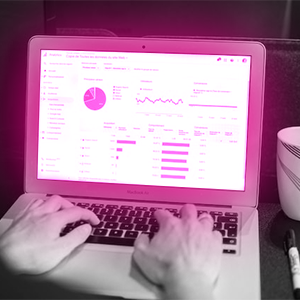
Activation For Media
Our team of media buyers have the expertise to negotiate rates and ad placement with media outlets, and handle all aspects of the media buying process, including the creation of the creative assets for the campaign, ensuring that the media is scheduled and aired on time, and tracking performance. Depending on the goals of the campaign, we plan for the most meaningful actions, for example, visits to a website, purchases, sign ups for a newsletter, or downloads of an app.
Creative For Media
Working within a spectrum of advertising formats, we understand how important the presentation of your messaging is, according to the channel you’re delivering on. Our in-house creative team can provide support in all capacities, from reformatting your existing assets, to crafting the most appropriate call-to-actions to match your objectives. WE keep an eye on industry trends and can advise you on the latest creative techniques and technologies that can be used to create engaging and effective campaigns.


Technology For Media
Alongside our thorough approach to building campaigns – from creating well-structed ad accounts, to implementing measurement tools – we’re also on hand to lend our expertise if you’re having trouble installing tracking pixels on your website, or formulating conversion events in Google Analytics. We can help clients select and implement the best tools for data analytics, automation, customer relationship management, and more.

Digital
Digital advertising offers a number of benefits for businesses looking to promote their products or services.
Platforms such as Google Ads, Facebook, Instagram, Linkedin and TikTok allow you to reach specific demographics, optimise campaigns in real-time and measure performance. They have billions of users, and can be a powerful way to drive targeted traffic to your website.
You can use these platforms to create highly targeted and effective advertising campaigns, as well as tracking campaigns in real-time and making data-driven decisions.
However, it requires a well-planned strategy and a budget to be effective.
If you’re interested in using digital advertising, and would like to speak to an expert, you can contact us on 0161 510 3000 today.

Connected TV
Connected TV (CTV) advertising is a form of digital advertising that allows you to reach audiences through streaming services on smart TVs and connected devices, such as Roku, Amazon Fire TV, and Apple TV.
Many people spend a significant amount of time streaming content on their TVs, making CTV advertising a great way to reach a highly engaged audience. You can target specific demographics, such as age and gender, as well as interests and behaviours.
Another advantage is its ability to deliver a high-quality viewing experience. CTV ads are typically non-skippable and delivered in full-screen format, which can lead to higher engagement rates than other forms of digital advertising.
CTV advertising can be a powerful tool if you’re looking to reach a large and engaged audience.
If you’re interested in using CTV advertising, and would like to speak to an expert, you can contact us on 0161 510 3000 today.

Out Of Home
Out Of Home (OOH) media, including Digital Out Of Home (DOOH) media, can be a valuable component in advertising campaigns.
OOH media, such as billboards, bus shelters, and transit ads, and especially DOOH media, such as digital billboards and kiosks, allows you to reach audiences with dynamic, interactive, and targeted messaging.
Additionally, DOOH media allows you to target specific audiences based on demographics, location, and other factors, providing a more effective way to reach desired audiences. You can create large, eye-catching ads that are difficult to miss, which can help to establish brand recognition and recall.
Out Of Home advertising allows you to reach audiences while they are out and about in the community and can be effective in building brand awareness.
If you’re interested in using Out Of Home advertising, and would like to speak to an expert, you can contact us on 0161 510 3000 today.

Audio
Broadcast radio advertising can be a cost-effective way to reach a large and diverse audience. Radio reaches a wide range of demographics and can be a great way to reach listeners in specific geographic areas. Digital audio advertising, such as streaming services like Spotify and Pandora, allows businesses to target specific demographics and interests, similar to digital advertising.
One of the main advantages of audio advertising is that it allows you to reach audiences while they are engaged in other activities, such as driving or working. This means that listeners are more likely to be paying attention and less likely to tune out or ignore the ad. Additionally, audio ads can be less intrusive than other forms of advertising, making them more likely to be well received by the audience.
Audio advertising allows you to reach a wide range of demographics and can be cost-effective. Additionally, digital audio advertising provides more in-depth metrics and targeting capabilities than traditional radio advertising.
If you’re interested in using Audio advertising, and would like to speak to an expert, you can contact us on 0161 510 3000 today.

One of the main advantages of print media is that it can be highly targeted. Many newspapers and magazines have a specific audience demographic, such as age, gender, or income level, which allows advertisers to reach their desired audience with precision.
Print media also tends to be more engaging than digital media, as readers are more likely to take their time reading a newspaper or magazine, rather than quickly scrolling through their social media feed. This can lead to higher recall and engagement rates for print advertisements.
Additionally, print media often offers a high-quality format for advertisements, with large, glossy pages that allow for rich images and detailed layouts. This can be particularly effective for luxury brands or businesses that want to create a sense of prestige or high-end quality.
If you’re interested in using Print advertising, and would like to speak to an expert, you can contact us on 0161 510 3000 today.
reach your
audience
At BuyMeMedia, we understand that every business is different, which is why we offer personalised services that meet your needs and budget.
If you’re interested in hiring us for your next project, or want more information about how we can work together please call 0161 510 3000, or submit an enquiry form to leave more details.






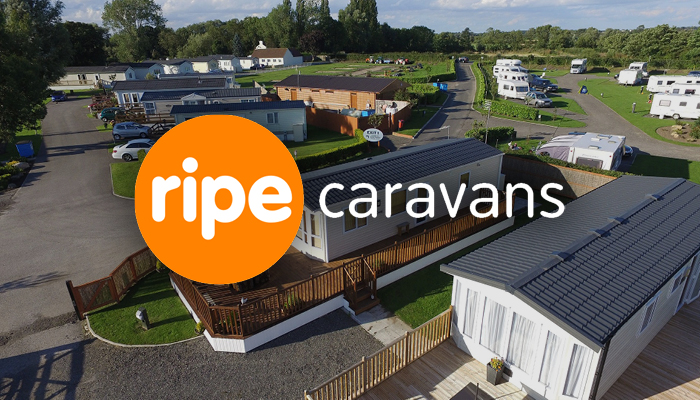









WE’RE AN INDEPENDENT MEDIA AGENCY..
Not being tied to any specific media outlets or platforms allows us to be more objective and strategic in our media planning and buying. We can be nimble and responsive to clients’ needs, and offer more specialised expertise in niche areas such as data analytics, content creation, and paid social media.
And an independent agency like us is more cost-effective than larger, networked agencies, which helps our clients stretch their marketing budgets further.
THAT DOES GOOD WORK..
We’re proud of the role we’ve played in award-winning campaigns, and our consistent delivery for both single-project and long-term clients.
Behind the scenes, we’re busy nurturing our platform partnerships, and continually developing our team through industry-recognised certifications, so that when you choose us; you’re choosing experts.

ACROSS A RANGE OF CHANNELS..
As the media landscape grows, the choice of platforms available becomes ever more confusing.
That’s where we come in.
Whether you’re looking to develop your paid social strategy, book a single billboard in town, or launch a nationwide radio ad, it’s our job to plan the most effective paths to success for your campaigns.





Need help?

